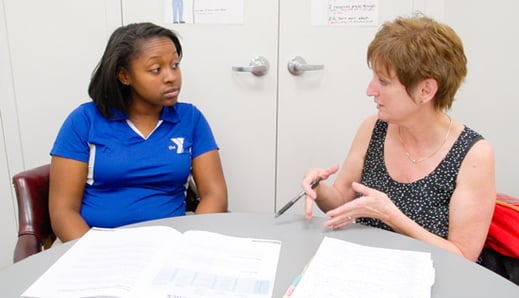
While managing MyTeachingPartner™ (MTP™) Coaching, my colleagues would roll their eyes when they'd catch me boasting to directors that our coaching staff and specialists are “here for you 24/7.” What I meant, of course, was that their dedication wasn't confined to business hours, but the implication was that they were "always on the job"—no wonder they rolled their eyes!
We feel deep responsibility as coaches, but must we carry that role 24/7? Obviously we can’t and shouldn’t try. Like teaching, coaching is not a job we can leave at the office and simply return to when we clock-in, so to do it successfully requires balance, patience, and presence. How do coaches maintain that when supporting the professionals on the frontlines with children every day, often serving as the first repository for shared anecdotes of great joy, great tragedy, and everything in between?
Here are some tips for coaches (and those who employ them) to find support and maintain the necessary energy to travel the journey of each classroom’s life over the course of a year or more with the teachers they coach:
- Develop trusting, collaborative relationships with teachers that will sustain your work together. Let teachers know they may share openly and confidentially (as appropriate) with you to break down barriers. Listen; don’t judge.
- Focus on the specific content and actual practice of the teachers whom you coach and use written notes, shared video, or other visual reminders of the purpose of your work in each coaching session. Stick with the topic you agreed to discuss and avoid being sidetracked by competing content priorities.
- Set the agenda aside when necessary and allow time for personal sharing of concerns or joys that provide you both with the opportunity to actively engage in building a strong relationship. Then, be sure to return to your focus.
- Choose a framework and standardized process to guide your work and stay grounded in it in each coaching session or interaction. Occasionally, you may need to set aside the framework to focus on an urgent issue, but return to it when ready to dive back into the content work.
- Get 1:1 support. Just as teachers support children and coaches support teachers, make sure coaches have support, too. One-on-one meetings, either in-person or remotely via audio or video conference, between coaches and their specialists—as we call them in MTP (download MTP one-pager)—provide an opportunity for coach goal-setting and in-depth reflection and feedback on the work with individual teachers.
- Join coach cohorts or communities of practice with colleagues, either in-person or via audio or video conference, to share anonymous case studies of successes and challenges and group discussions of specific content areas or coaching principles and ethics.
For more, check out our MTP Coaching Support program, our new Instructional Support Strategies training, or our Instructional Support Strategies Online Course.
How do you find balance, patience, and presence as a coach? Please tell us in the comments below--we'd love to know!
